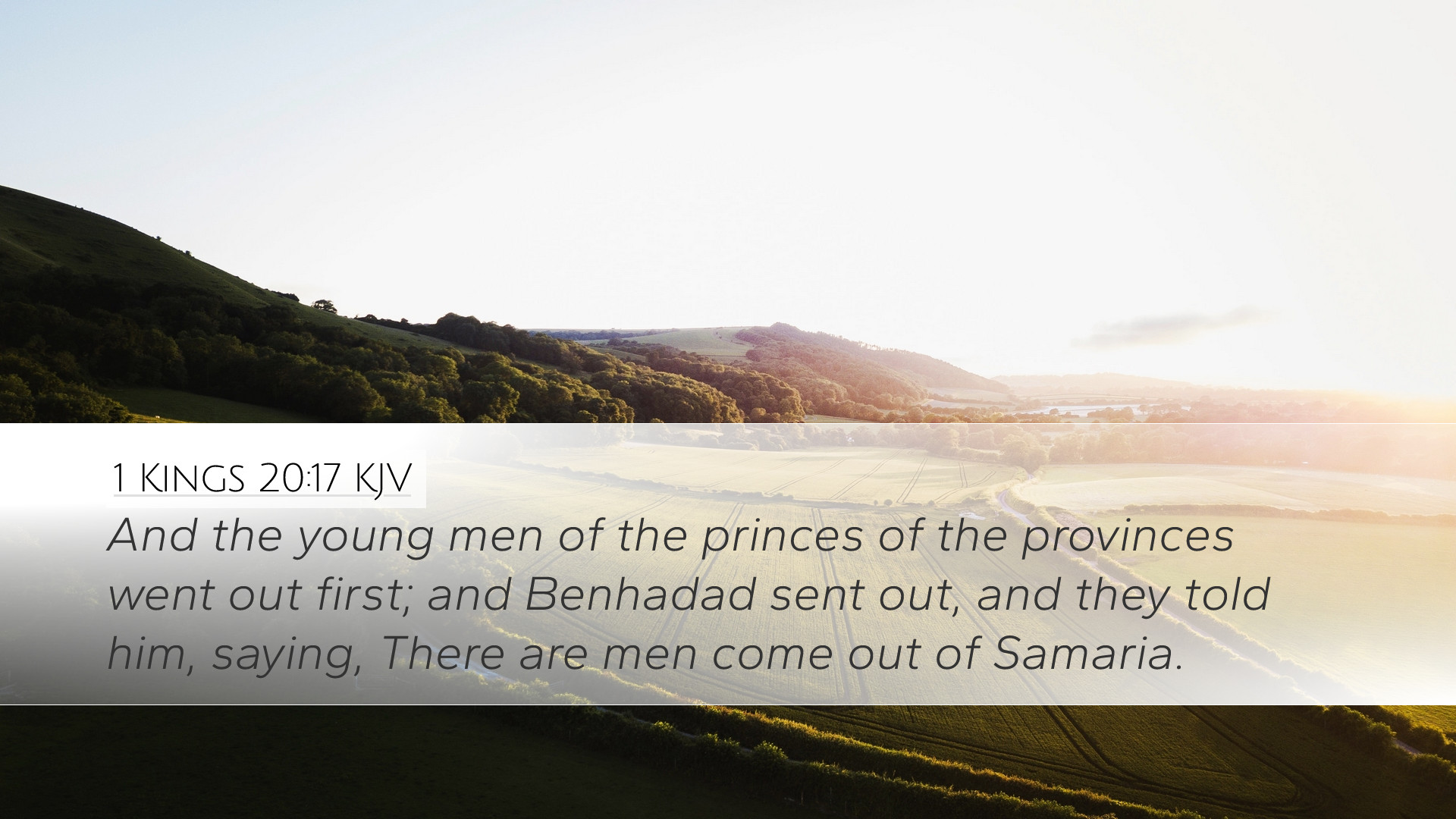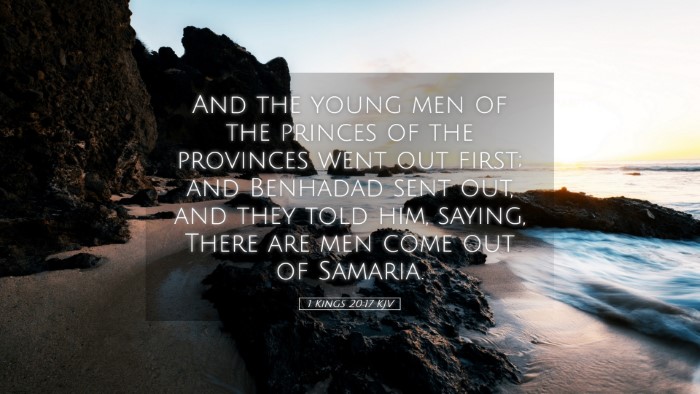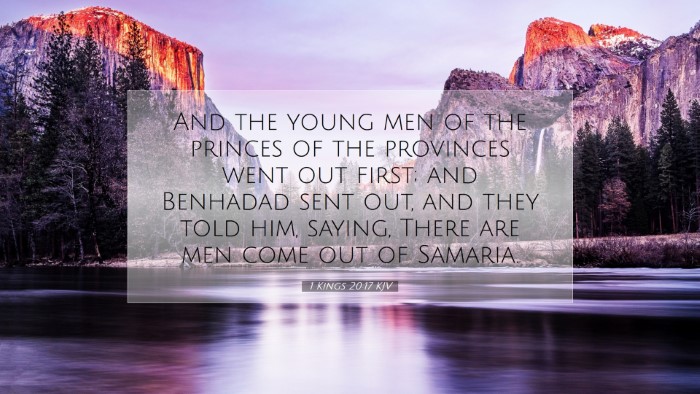Commentary on 1 Kings 20:17
1 Kings 20:17 states:
"And the young men of the princes of the provinces went out first; and Ben-hadad sent out, and they told him, saying, There are men come out of Samaria."
This verse occurs in the context of a conflict between Israel, under King Ahab, and Ben-hadad, the king of Syria. It marks a significant moment in the narrative, highlighting strategic military movements as well as the unfolding drama of power between these two kingdoms.
Insights from Commentaries
Matthew Henry
Matthew Henry emphasizes the significance of the young men sent out by the princes. He describes them as the front line of Israel’s defense, indicative of both youthful valor and the weakness of Ben-hadad’s position. The historical context suggests that Ahab was being bold due to the confidence given by divine intervention, evidenced by the prophetic assurances he received earlier regarding his conflict with Ben-hadad.
Henry notes that the phrase "men come out of Samaria" served as a sound of alarm for Ben-hadad, suggesting he perceived the Israeli forces as being more numerous than they actually were. The mention of "men from Samaria" highlights Jerusalem’s influence and the degrading of Ben-hadad’s confidence, as he underestimated his adversary.
Albert Barnes
In his commentary, Albert Barnes discusses the strategic implications of this verse. He posits that Ahab's actions were marked by shrewdness and courage, especially in how his young men led the charge. Barnes reflects on the political climate: the king of Syria, Ben-hadad’s immediate reaction indicates a level of fear and uncertainty regarding the strength of Samaria. The young men’s initial movement also reflects a tactical maneuver to outpace Ben-hadad’s expectations.
Barnes further elaborates on the psalmist's view of reliance on God, interpreting the situation as a fulfillment of God’s promise to Ahab that he would deliver Ben-hadad into his hand. The move to send out the young men first can thus be seen as not merely a military strategy but also as a demonstration of faith in God’s providence.
Adam Clarke
Adam Clarke provides a detailed observation about the youthful resolve of those sent out. He notes the importance of their readiness and bravery against the backdrop of the imminent threat posed by Ben-hadad. Clarke discusses how this passage illustrates the themes of divine support and the reliance on younger warriors in times of conflict, noting that their vigor and zeal can sometimes outweigh strategic advantages held by a more developed enemy force.
Clarke's analysis also delves into the broader implications of leadership; the choice to send youths reflects Ahab’s trust in his warriors and signifies a generational shift in the battle. He ties this to a theological perspective, suggesting that God's favor rested with the young and the bold who stepped forth in faith, affirming that divine favor can often empower those least expected.
Theological Reflections
This verse invites readers to reflect on the nature of faith in conflict scenarios. It encourages a deeper understanding of how God operates through human actions, particularly emphasizing the roles of youth and courage in fulfilling divine promises. The involvement of young men suggests a divine allowance for growth and initiative, challenging all believers to engage actively in God’s work regardless of their status or maturity.
Moreover, this confrontation serves as a poignant reminder of the broader spiritual battles faced by the church today. Much like Ahab’s reliance on God's promises, believers are called to trust in divine deliverance amid physical and spiritual warfare.
Practical Applications
- Empowerment of Youth: Churches should seek to empower younger members to take active roles in ministry. This verse exemplifies how God uses young leaders for significant tasks.
- Faith in Adversity: Believers are reminded to act in faith even when perceived odds are against them, trusting in God’s sovereignty and guidance.
- Strategic Planning: This passage highlights the importance of strategic thinking in ministry and the necessity of forming an effective first response.
- Understanding Divine Timing: The unfolding events underscore that God's plans may often be contrary to human expectations. Patience in times of waiting can yield divine outcomes.
Conclusion
1 Kings 20:17 serves as a rich narrative illustrating both historical actions and spiritual principles. By examining the text through the lenses of respected commentators like Matthew Henry, Albert Barnes, and Adam Clarke, deeper insights are gleaned into the nature of faith, leadership, and divine intervention. This passage not only recounts a significant event in Israel’s history but also calls contemporary Christians to embody the resolve and faith demonstrated by Ahab’s young men in their own spiritual battles.


